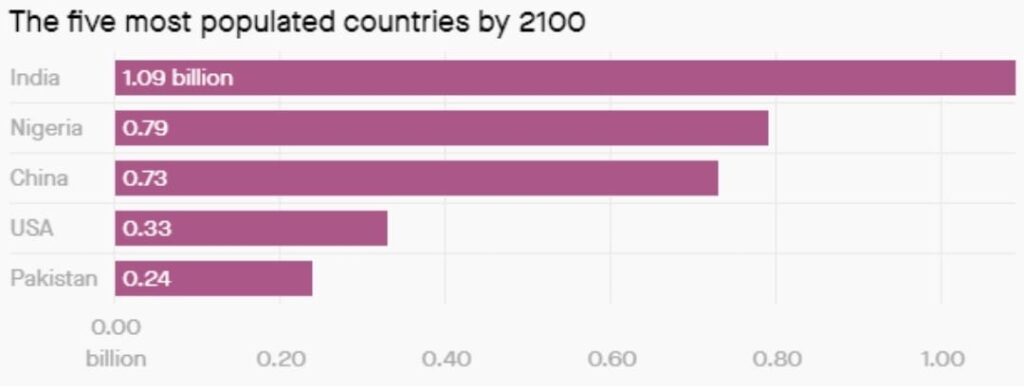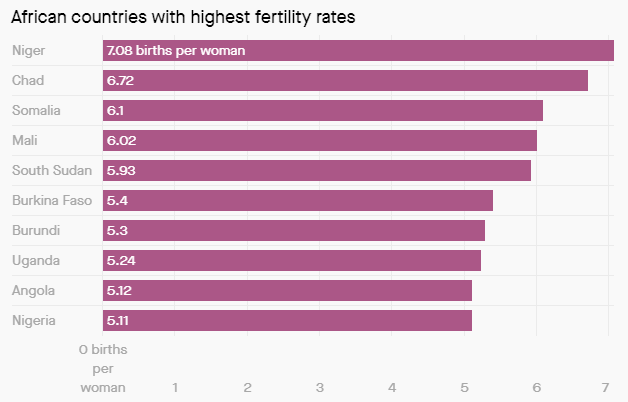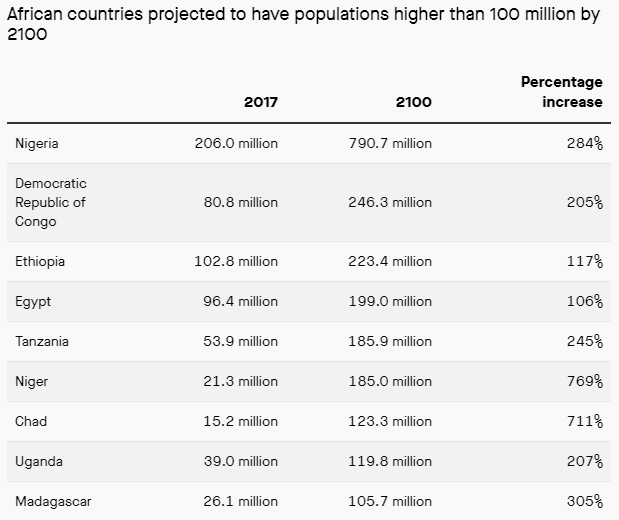
Faith Nyasuguta
The global population landscape is set to undergo a dramatic shift by the end of the century, with every region except Africa facing a decline. This anticipated contraction stems from decreasing fertility rates, where death rates may surpass birth rates in numerous countries.
The most significant declines are expected in countries like Thailand, Japan, and Spain, among others, where populations could halve by 2100, according to a recent Lancet report on fertility and population growth scenarios.
In stark contrast, Africa is poised for a population boom, with its total population projected to triple over the same period. While a population surge in Africa has been forecasted previously, the Lancet’s new findings extend the timeline and confirm earlier predictions. Nigeria, already Africa’s most populous nation, is anticipated to drive this surge, with an estimated population of 790.7 million by 2100.

With a projected 48% population decline in China, Nigeria is poised to become the world’s second-largest country by 2100, trailing only India. This growth trend is not unique to Nigeria; other African nations are also expected to experience significant population increases. By 2100, Africa is projected to have nine countries with populations exceeding 100 million, up from just two in 2017.
Among these populous countries, Niger and Chad, two of Africa’s poorest nations, are expected to see the largest percentage increases in population size. The Democratic Republic of Congo is also poised to ascend from being Africa’s fourth-largest country by population to its second.
The Lancet’s findings further indicate that by 2100, up to 183 countries will have fertility rates below 2.1 births per woman, the minimum rate required for generational population replacement. This demographic shift will result in an altered age structure, with more individuals aged over 65 (2.37 billion) than those under 20 (1.7 billion) by century’s end.
While several African countries are projected to have lower fertility rates by 2100, the continent’s impending population growth will be driven by its youthful population and the current high fertility rates across the region. Only seven African countries ”Cape Verde, Botswana, South Africa, Morocco, Algeria, Tunisia, and Libya ”currently have fertility rates lower than the global average of 2.37 births per woman.

This anticipated population growth poses significant policy challenges for African governments, particularly given the region’s low levels of human capital development. The United Nations predicts that larger populations will make it increasingly challenging for African governments to alleviate poverty, hunger, and improve access to healthcare and education.
Take Nigeria, for example, which is expected to experience a nearly 300% increase in its population. Despite its population growth, Nigeria currently ranks 152nd out of 157 countries on the World Bank’s Human Capital Index. Moreover, it surpassed India as the world’s poverty capital in 2018. The failures of successive Nigerian governments have led to sustained emigration of the country’s middle class, further exacerbating economic challenges.

This trend of emigration is likely to intensify across the continent as population growth places additional strain on already stretched amenities and infrastructure. Many Africans will seek better economic opportunities, living standards, and education abroad, resulting in a brain drain that could hinder Africa’s development prospects.
Interestingly, opportunities for migration are increasing as countries with aging and shrinking populations, such as Japan, seek to fill skill and labor force gaps. These countries are reevaluating their strict anti-immigration policies in an effort to sustain their economies.
RELATED:





1 Comment
Africa should plan for this now otherwise it will be another lost opportunity if it doesn’t stop the bran drain and provide opportunities to its young population.